Imagine, you have met with an accident and this has disfigured your face to some extent. In that case, your doctor would refer you to a maxillofacial surgeon for correction surgeries to repair the broken jaw, or a reconstruction surgery. Maxillofacial Surgery is the specialty that deals with treating patients off the injuries they incurred in the head, jaw, neck, oral tissues and facial area. 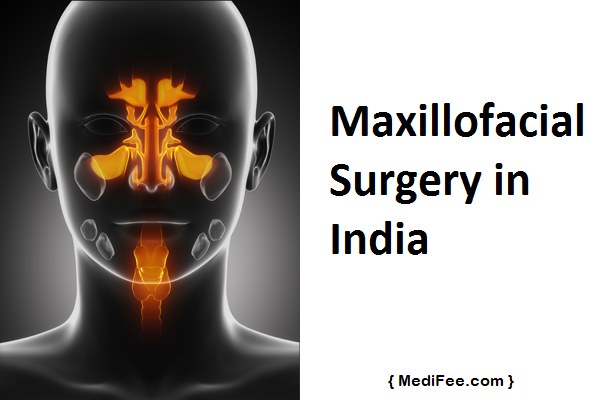
Read on to find out more about maxillofacial surgery, people who have to undergo it, risks and benefits attached to it. Also find out available types of the surgery.
Who is a maxillofacial surgeon?
A maxillofacial surgeon is a medical practitioner having expertise in treating defects as well as injuries of head, neck, jaws and mouth. They are responsible for the aesthetic reconstruction and revision of the regions on the said organs in event of an accidental injury.
What are the procedures falling under the purview of maxillofacial surgery?
Maxillofacial surgeries are unique and complex procedures. Hence, these below mentioned surgeries are performed by expert and qualified surgeons.
(a) Wisdom teeth surgery
(b) Corrective surgery for jaws
(c) Bone grafting
(d) Temporomandibular joint (TMJ) disorders
(e) Obstructive sleep apnea (OSA)
(f) Cosmetic head and neck surgery
- Wisdom teeth surgery– Wisdom teeth are the third molars and are typically the last teeth to erupt within the mouth. When they align properly and gum tissue is healthy, wisdom teeth do not have to be removed. Unfortunately, this does not generally happen. The extraction of wisdom teeth is necessary when they become impacted and are prevented from properly erupting within the mouth. Wisdom teeth are easier to remove when the patient is younger, since their roots are not completely formed, the surrounding bone is softer, and there is less chance of damaging nearby nerves or other structures. Removal of wisdom teeth at a later age becomes more complicated as the roots have fully developed (may involve the nerve), and the jawbone is denser. Risks– As with different surgical procedures, wisdom tooth surgery also comes with potential risks like stroke, heart attack after administering anesthesia, lingual nerve damage, numbness in lip, cheeks and tongue, fractured jaw etc.
- Corrective surgery for jaws– Orthognathic Surgery or Corrective Jaw Surgery is performed for correcting alignment of upper and lower teeth. As part of this technique, osteotomy is usually performed, which involves cutting parts of the jaw to create removable fragments of bone that can be repositioned to form a straight jaw. Difficulty in swallowing and chewing food, a protruding jawline, chronic jaw pain, dry mouth etc. are few indicators that the person needs to undergo correction surgery. Risks– Pain, bleeding, hemorrhage, redness of the skin, lung complication, nerve injuries, marks and scars due to incision are few risks happening because of corrective surgeries of jaws.
- Bone grafting– Bone grafting as part of maxillofacial surgery has become a regular surgical aspect for maxillofacial surgeons in the reconstruction of congenital jaw defect.
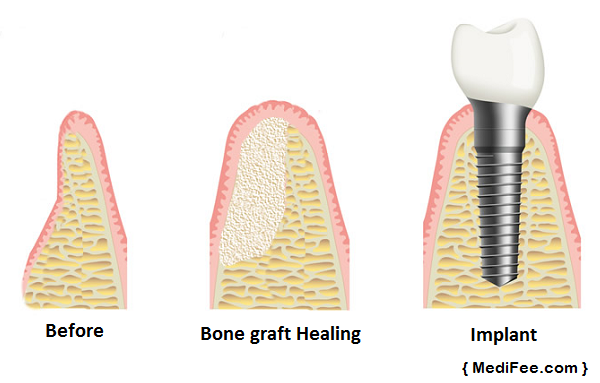 Bone grafting is done for fusing joints together, repairing injured and fractured bones. The graft used is either from bones of patients or from donated bones. The term grafts applies to the transplantation of living tissues and implant, means transplantation of non viable tissues. Besides, microvascular flap with bone may be grafted with vessels using anastomosis. Numerous attempts have been made for long time to employ the above mentioned procedures in the reconstruction of jaw after oncological surgery, destruction of a bone by accident, congenital defects, in the treatment of jaw deformity, TM joint abnormalities. Various types of bone grafts, such as- xenogenic bone grafts, autogenic bone grafts, allogeneic bone grafts have been successfully transplanted time to time by some surgeons. However, the success of bone grafting is still a challenging issue in the field of maxillofacial surgery. Bone grafting can be opted for increasing the height or width of the jawbone for removing defects. Deformities in the jawbone can be corrected, and restructuring of the bone can provide added support. Bone grafting can also be used to prevent or restrict bone recession owing to a tooth extraction or periodontal disease. Risks– Resorption of grafts which involves disappearance of grafts due to lack of nourishment they receive, rejection of the bone graft, swelling, nerve injury are some of the risks coming with opting for brain grafting.
Bone grafting is done for fusing joints together, repairing injured and fractured bones. The graft used is either from bones of patients or from donated bones. The term grafts applies to the transplantation of living tissues and implant, means transplantation of non viable tissues. Besides, microvascular flap with bone may be grafted with vessels using anastomosis. Numerous attempts have been made for long time to employ the above mentioned procedures in the reconstruction of jaw after oncological surgery, destruction of a bone by accident, congenital defects, in the treatment of jaw deformity, TM joint abnormalities. Various types of bone grafts, such as- xenogenic bone grafts, autogenic bone grafts, allogeneic bone grafts have been successfully transplanted time to time by some surgeons. However, the success of bone grafting is still a challenging issue in the field of maxillofacial surgery. Bone grafting can be opted for increasing the height or width of the jawbone for removing defects. Deformities in the jawbone can be corrected, and restructuring of the bone can provide added support. Bone grafting can also be used to prevent or restrict bone recession owing to a tooth extraction or periodontal disease. Risks– Resorption of grafts which involves disappearance of grafts due to lack of nourishment they receive, rejection of the bone graft, swelling, nerve injury are some of the risks coming with opting for brain grafting. - Temporomandibular joint (TMJ) disorders – Stress triggers pain in the form of a clicking sound in the jaw muscles.
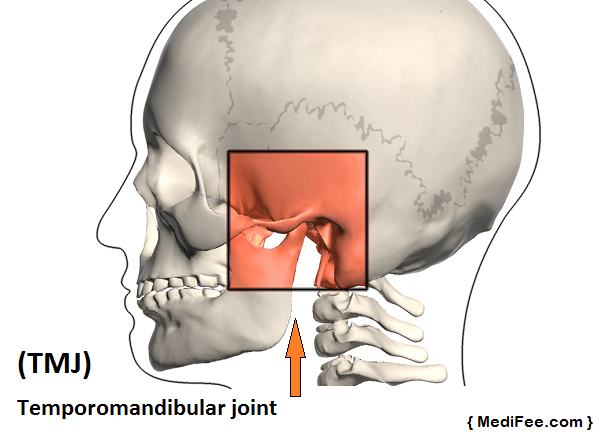 Patients are known to clench or grind their teeth at night giving rise to painful spasms in the muscles and difficulty in moving the jaw. Patients may also experience a combination of muscle and joint problems. This makes diagnosing TMJ disorders complex in nature, requiring different diagnostic procedures. Symptoms of TMJ necessitate treatment from an oral and maxillofacial surgeon who is a specialist in the areas of the mouth, teeth and jaws. Special imaging studies of the joints enable the specialists to get a better view of joints. Risks – Some scarring may occur due to incision done during surgery; however, this will heal soon.
Patients are known to clench or grind their teeth at night giving rise to painful spasms in the muscles and difficulty in moving the jaw. Patients may also experience a combination of muscle and joint problems. This makes diagnosing TMJ disorders complex in nature, requiring different diagnostic procedures. Symptoms of TMJ necessitate treatment from an oral and maxillofacial surgeon who is a specialist in the areas of the mouth, teeth and jaws. Special imaging studies of the joints enable the specialists to get a better view of joints. Risks – Some scarring may occur due to incision done during surgery; however, this will heal soon. - Obstructive sleep apnea (OSA) – Obstructive Sleep Apnea causes the person to get a very poor amount of sleep, thus disrupting his everyday life and routine. Accidents, dismal memory, feeling fatigued during the day, poor retention power are few after-effects of improper sleep.
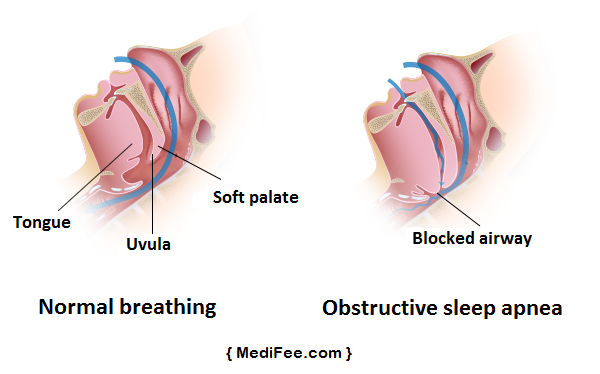 OSA is a dangerous condition as there is obstruction in the throat which gives disrupted sleep to the person. Risks – Obstructive sleep apnea requires medical attention and surgery with the help of maxillofacial surgeons. If left untreated it can can lead to more serious consequences.
OSA is a dangerous condition as there is obstruction in the throat which gives disrupted sleep to the person. Risks – Obstructive sleep apnea requires medical attention and surgery with the help of maxillofacial surgeons. If left untreated it can can lead to more serious consequences. - Cosmetic head and neck surgery– Head and neck surgeries are newer procedures in the cosmetic sciences. Such surgeries are done not only for medical reasons but also for improving appearances and halting the aging in people. Excess skin and fat is removed to eventually tighten the skin around the neck. Risks – Loss of blood, an unfavorable reaction to the anesthesia, permanent scarring, skin irregularities, loss of bone grafts, and at times even brain damage can be few of the repercussions of head and neck surgery.
What are the common reasons for people to undergo maxillofacial surgeries?
Maxillofacial surgeries are minimally invasive surgery techniques. Meaning that, their aim is to provide maximum comfort and results out of minimum pain to patients. Maxillofacial surgery becomes a necessity due to many reasons. These are few common reasons that necessitate people to go in for maxillofacial surgery techniques:
- Correction of overbites: Misalignment of lower and upper jaws causes protrusion of upper jaw more than necessary. This leads to overbite. Extreme cases of this condition demand that the patients undergo maxillofacial surgery for the same.
- Jaw Deformities: Deformities in the jaws as a result of uneven growth is a condition similar to overbites. Chewing, breathing and speaking become a great difficulty for people suffering from jaw deformities. Maxillofacial surgery for correction and proper balance between jaws is important.
- Tooth decay: Tooth decay creates cavities in the teeth and also is responsible for destroying the adjoining teeth. Impacted wisdom tooth are also subject to decay and gum disease. As a result, maxillofacial surgery is utilized for treatment.
- Wisdom tooth extraction: Impacted wisdom teeth which crowd and damage adjoining teeth require maxillofacial procedure for curing it. Timely treatment for wisdom tooth should be taken as bacteria and cyst formation can take place if left untreated.
- Oral tumors: Tumors may develop between partially and totally impacted teeth. Such tumors need to be treated through maxillofacial surgeries.
- Dental implants: Dental implants or artificial teeth similar to prosthetics require maxillofacial surgeries. For more information on dental implants, click here.
- Head and neck cancer: Head and neck cancer or orofacial cancer are usually characteristic of lumps or ulcers developing in tongue, lips or insides of mouth. An oral and maxillofacial surgeon comes into the picture for referring the patient within 14 days of diagnosis for further treatments and surgery.
- Cleft lip and palate: Uneven development of portions of mouth and nose cavity during fetal growth gives rise to cleft in lip and palate. As a result, the person has problems in simple everyday activities like speaking, chewing and even hearing. Cleft condition can be treated through expertise of maxillofacial surgeons with the help of medication and stages of surgery.
What are the benefits of maxillofacial surgeries?
Maxillofacial surgery, a specialty born out of amalgamation of dentistry and medicine, is a very unique internationally recognized medical discipline. It imparts a wealth of benefits to the person undergoing it. The benefits coming with are as listed below:
- Impacted wisdom teeth:
Wisdom teeth as aforementioned, can cause a lot of oral health issues and pain to people. Maxillofacial surgery can be used for its removal through minimally painful techniques. - Birth defects:
Birth defects or congenital anomalies such as cleft lip and cleft palate can be treated using maxillofacial surgery. - Facial fractures:
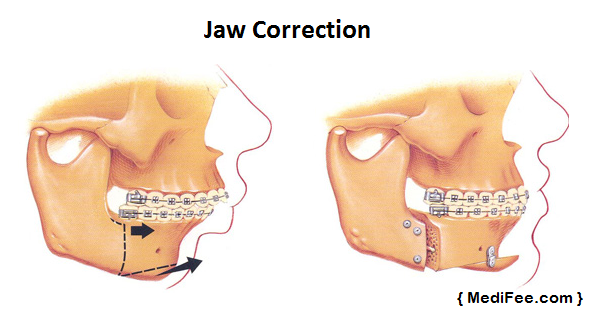 Jaws and facial bones when fractured as a result of accidental trauma can be corrected through oral maxillofacial surgeries for facial reconstruction.
Jaws and facial bones when fractured as a result of accidental trauma can be corrected through oral maxillofacial surgeries for facial reconstruction. - Aesthetic appeal:
Restructuring of chin and jaws through maxillofacial procedures enhances one’s looks and grants him/her a better appearance aesthetically. - Sleep disorders:
People suffering from sleep disorders due to a protruding jaw are treated using maxillofacial surgery technique. This helps them sleep better and also breathe in a proper way. - Ease in chewing and swallowing food:
Maxillofacial surgeries enable people having misaligned jaws to chew and swallow food without experiencing a piercing pain.
The medical field has made a lot of advancements. There are treatment options for disorders available, which wasn’t the case some years back. Likewise, maxillofacial surgery is a double purpose surgical option. It can be availed of for cosmetic as well as medical purposes. But, it is always prudent to be well-informed about its risks and benefits before going under the knife.